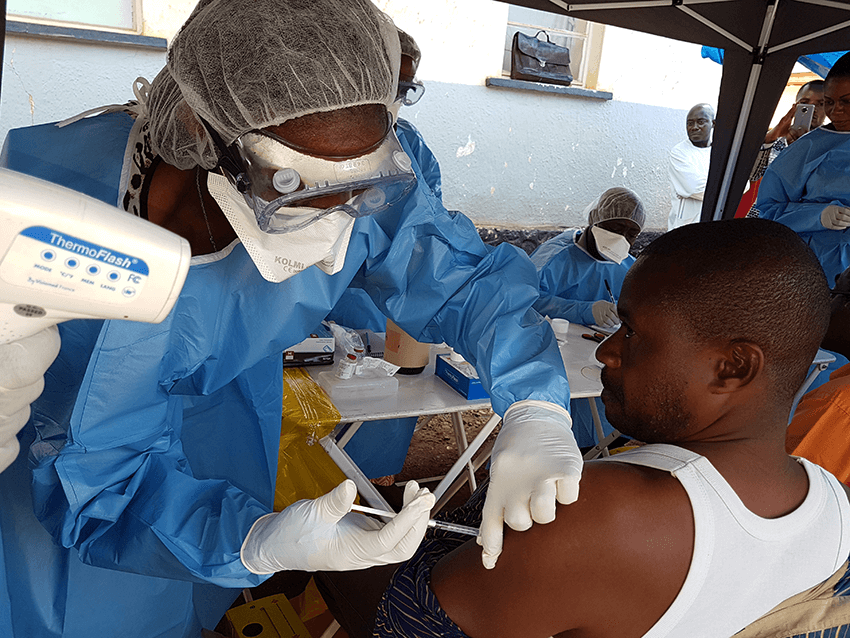
Photo Credit: WHO
The four leading international health and humanitarian organizations on Jan 12, 2021, announced the establishment of a global Ebola vaccine stockpile to ensure outbreak response.
The effort to establish the stockpile was led by the International Coordinating Group (ICG) on Vaccine Provision, which includes the World Health Organization (WHO), UNICEF, the International Federation of Red Cross and Red Crescent Societies (IFRC), and Médecins Sans Frontières (MSF), with financial support from Gavi, the Vaccine Alliance. The stockpile will allow countries, with the support of humanitarian organizations, to contain future Ebola epidemics by ensuring timely access to vaccines for populations at risk during outbreaks.
The injectable single-dose Ebola vaccine (rVSV∆G-ZEBOV-GP, live) is manufactured by Merck, Sharp & Dohme (MSD) Corp. and developed with financial support from the from the government of the United States of America (USA). The European Medicines Agency licensed the Ebola vaccine in November 2019, and the vaccine is now prequalified by WHO, and licensed by the US Food and Drug Administration as well as in eight African countries.
Before achieving licensure, the vaccine was administered to more than 350,000 people in Guinea and in the 2018-2020 Ebola outbreaks in the Democratic Republic of the Congo under a protocol for “compassionate use”.
The vaccine, which is recommended by the Strategic Advisory Group of Experts (SAGE) on Immunization for use in Ebola outbreaks as part of a broader set of Ebola outbreak response tools, protects against the Zaire ebolavirus species which is most commonly known to cause outbreaks.
UNICEF manages the stockpile on behalf of the ICG which, as with stockpiles of cholera, meningitis and yellow fever vaccines, will be the decision-making body for its allocation and release.
The stockpile is stored in Switzerland and ready to be shipped to countries for emergency response. The decision to allocate the vaccine will be made within 48 hours of receiving a request from a country; vaccines will be made available together with ultra-cold chain packaging by the manufacturer for shipment to countries within 48 hours of the decision. The targeted overall delivery time from the stockpile to countries is seven days.
As Ebola outbreaks are relatively rare and unpredictable, there is no natural market for the vaccine. Vaccines are only secured through the establishment of the stockpile and are available in limited quantities. The Ebola vaccine is reserved for outbreak response to protect people at the highest risk of contracting Ebola – including healthcare and frontline workers.
An initial 6890 doses are now available for outbreak response with further quantities to be delivered into the stockpile this month and throughout 2021 and beyond. Depending on the rate of vaccine deployment, it could take 2 to 3 years to reach the SAGE-recommended level of 500,000 doses for the emergency stockpile of Ebola vaccines. WHO, UNICEF, Gavi and vaccine manufacturers are continuously assessing options to increase vaccine supply should global demand increase.




